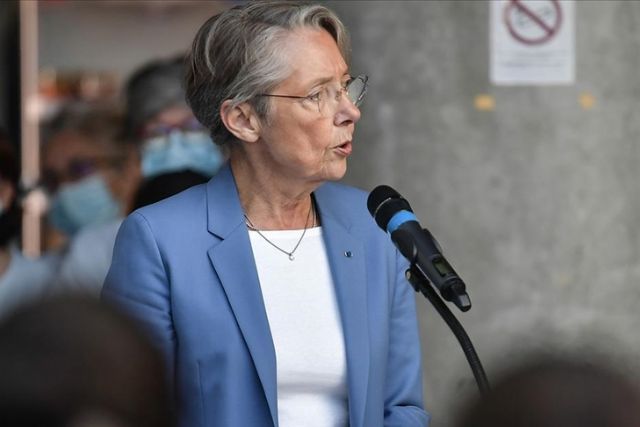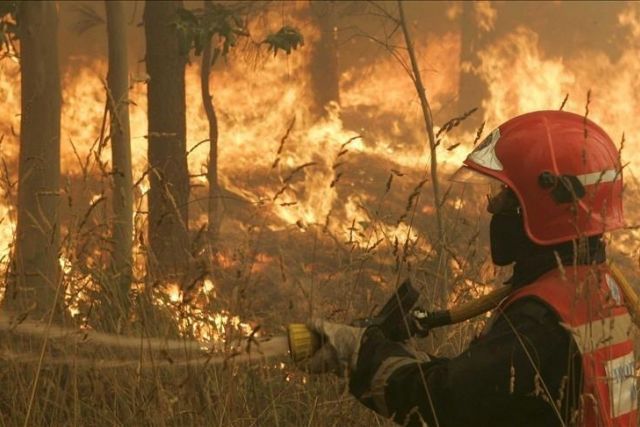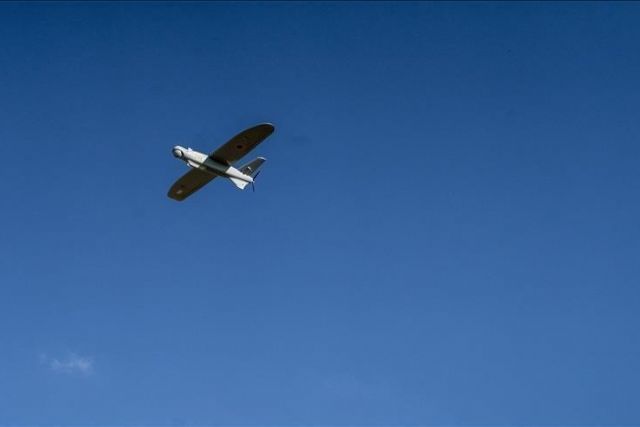French premier calls for 'humanitarian cease-fire' in Gaza
Elisabeth Borne stresses vital need to take action to prevent escalation of conflict in region

PARIS
France called Monday for a "humanitarian cease-fire" in Gaza as the Israel-Palestine conflict continued.
Speaking before the National Assembly, Prime Minister Elisabeth Borne said Israel has the right to defend itself and also expressed her desire for Palestinians to have their own state.
Borne recalled the thousands of casualties, including children, amid the Israel-Palestine conflict.
She called for a "humanitarian cease-fire" in Gaza to facilitate the distribution of humanitarian aid and suggested that this could later contribute to achieving a broader cease-fire.
She also emphasized the importance of opening the Rafah border crossing to allow the passage of additional humanitarian assistance and stressed the vital need to take action to prevent an escalation of the conflict in the region.
Meanwhile, a call by European Union countries for a cease-fire in the conflict to allow humanitarian aid into Gaza is expected to be discussed at an EU Leaders Summit this week.
EU foreign ministers mulled calling for a “humanitarian pause” in Gaza during a meeting Monday in Luxembourg but fell short of giving consideration to a full cease-fire.
EU foreign policy chief Josep Borrell said there is a difference between a cease-fire and a pause in hostilities.
Borrell suggested that a pause could be achieved more quickly and easily compared to a full cease-fire, and it appears that the foreign ministers believe such a pause is necessary.
He also said that issues related to a cease-fire would be discussed at the EU Leaders Summit scheduled for Oct. 26-27.
He said that such a pause in hostilities, which would facilitate the entry of humanitarian aid and help displaced people find shelter, would receive the support of EU leaders.
Reminding that they had emphasized that Israel had the right to defend itself after attacks by the Palestinian group Hamas, Borrell reiterated that this should be done within international law.
"The right to self-defense has limits. These limits are the lines drawn by international law. We repeat this. In particular, cutting off electricity and water to civilians cannot be within these limits. According to international law, a people under blockade cannot be deprived of water and electricity." he said.
A third convoy of 20 aid trucks entered the Rafah crossing from Egypt to the blockaded Gaza Strip on Monday, according to a Palestinian spokesman at the terminal.
“Twenty trucks carrying humanitarian aid are being allowed into Gaza through the Rafah crossing,” Wael Abu Mohsen told Anadolu.
Egypt's state news agency MENA confirmed that a third convoy of aid trucks had entered the terminal to Gaza.
MENA said the trucks were loaded with foodstuffs, water, medicine and other medical supplies.
“Ten other aid trucks are being prepared,” MENA said.
Two convoys of 34 aid trucks had already entered Gaza from Egypt in the past two days.





